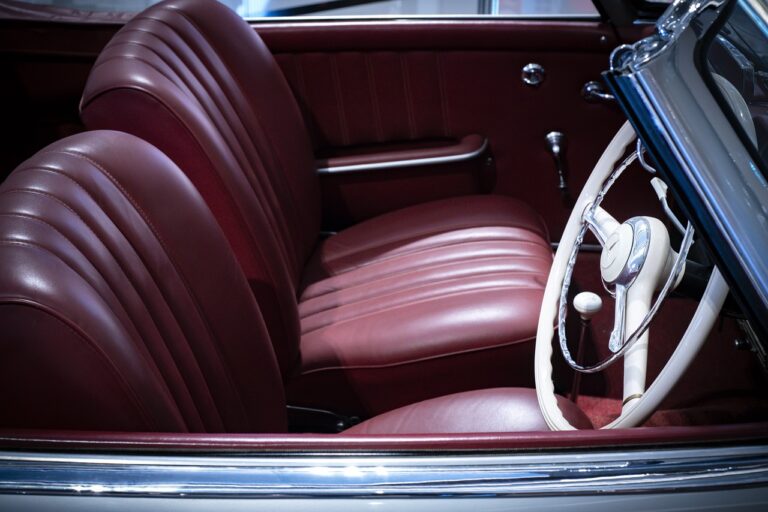Exploring the Link Between Automotive Air Conditioning and Allergen Filtration
betbhai com, playexch login, gold 365:Have you ever thought about the connection between your car’s air conditioning system and allergen filtration? Most of us spend a significant amount of time in our vehicles, especially during daily commutes or road trips. Ensuring that the air we breathe inside our cars is clean and allergen-free is essential for our health and well-being.
Let’s delve into this topic and explore how automotive air conditioning systems play a crucial role in filtering out allergens and improving the air quality inside your vehicle.
The Basics of Automotive Air Conditioning
Before we dive into the specifics of allergen filtration, let’s first understand how automotive air conditioning systems work. Just like the air conditioning in your home, your car’s AC system is designed to cool the air inside the vehicle and maintain a comfortable temperature.
The AC system in your car consists of several key components, including the compressor, condenser, evaporator, and refrigerant. When you turn on your AC, the compressor compresses the refrigerant gas, which then flows through the system, cooling the air as it moves through the evaporator. The cooled air is then circulated back into the cabin, providing you with a comfortable environment, especially in hot weather.
The Connection to Allergen Filtration
Now, how does all of this tie into allergen filtration? Most modern vehicles come equipped with cabin air filters, which help to trap dust, pollen, and other airborne particles before they enter the HVAC system. These filters are essential for maintaining clean air inside your car and preventing allergens from circulating throughout the cabin.
Cabin air filters are typically made from a pleated paper-like material or synthetic fiber, which is designed to capture and trap particles as small as a few microns in size. This means that common allergens like dust, pollen, mold spores, and pet dander are filtered out, resulting in cleaner air for you and your passengers to breathe.
Regular maintenance of your cabin air filter is crucial to ensure optimal performance. Most manufacturers recommend replacing the filter every 12,000 to 15,000 miles, but if you drive in dusty or high-pollution areas, you may need to replace it more frequently.
Benefits of Allergen Filtration in Your Vehicle
The benefits of having an effective allergen filtration system in your car go beyond just clean air. Here are a few reasons why it’s important to pay attention to your cabin air filter:
1. Healthier Environment: By filtering out allergens and pollutants, you reduce the risk of respiratory problems, allergies, and other health issues caused by poor air quality.
2. Improved Comfort: Clean air inside your car will make your driving experience more comfortable and enjoyable, especially for those with sensitivities to allergens.
3. Preventing Odors: Cabin air filters can also help to eliminate unpleasant odors from entering the vehicle, ensuring a fresh and clean-smelling interior.
Tips for Maintaining Clean Air in Your Vehicle
In addition to regular replacement of your cabin air filter, there are a few other steps you can take to ensure that the air inside your car remains clean and allergen-free:
1. Keep your car clean: Regularly vacuum and wipe down the interior of your car to remove dust, dirt, and other particles that can degrade air quality.
2. Avoid smoking: Smoking in the car not only releases harmful chemicals into the air but also leaves behind residue that can stick to surfaces and affect air quality.
3. Use air fresheners sparingly: While air fresheners can mask odors, they can also introduce chemicals into the air that may be irritating to those with sensitivities.
4. Schedule regular maintenance: Have your AC system inspected and serviced regularly to ensure that it is working efficiently and effectively.
FAQs
Q: How often should I replace my cabin air filter?
A: Most manufacturers recommend replacing the cabin air filter every 12,000 to 15,000 miles, but it’s a good idea to check your vehicle’s manual for specific recommendations.
Q: Can I clean my cabin air filter instead of replacing it?
A: While some cabin air filters are washable and reusable, most are designed for one-time use. It’s best to follow the manufacturer’s guidelines for replacement.
Q: Are there different types of cabin air filters available?
A: Yes, there are different types of cabin air filters, including standard pleated filters, activated charcoal filters, and HEPA filters. Each type offers varying levels of filtration efficiency.
In conclusion, the link between automotive air conditioning and allergen filtration is crucial for maintaining clean air inside your vehicle. By understanding how your AC system works and the role of the cabin air filter, you can take steps to improve air quality and create a healthier environment for yourself and your passengers. Don’t overlook the importance of allergen filtration in your car your health and well-being depend on it.







